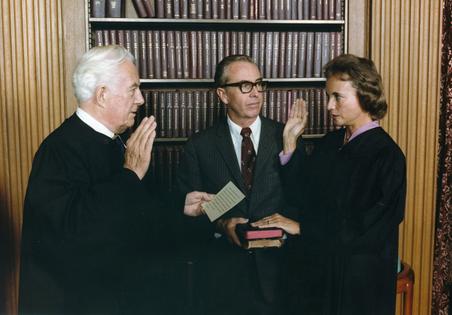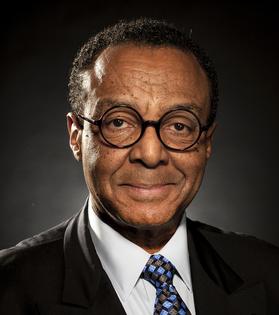President Joe Biden’s Risky Court Pick Isn’t That Risky
Selective memory is alive and well in politics. You can hear it in the predictable howls of protest and gnashing of teeth following President Joe Biden’s promise to — surprise, surprise — name “the first Black woman ever nominated to the Supreme Court.”
Never mind that Republican Ronald Reagan, to name one conservative icon, made a similar demographic outreach in 1980 as he campaigned to unseat Democratic President Jimmy Carter.
A few weeks before Election Day, as some of his rallies were picketed by supporters of the Equal Rights Administration, which he opposed, Reagan promised to name a woman to “one of the first Supreme Court vacancies in my administration.”
He kept that promise by naming Sandra Day O’Connor, then an Arizona judge, to the high court on the recommendation of another conservative Republican icon, Arizona Sen. Barry Goldwater.
Yet, judging by the explosion of rage on the right at Biden for similarly sticking by his own promise, you might have thought the Democratic president was, as right-winger Sean Hannity described it on his Fox News show, “bullied into the decision by the new extreme left.”
Right. No way that Biden was thinking for himself?
And even the Grand Old Party’s de facto leader, Donald Trump, pledged to nominate a woman to fill the seat of late Justice Ruth Bader Ginsburg — and fulfilled that pledge with Justice Amy Coney Barrett. Whether you love her views or not, she’s qualified.
And Team Biden released a shortlist of his potential candidates who also seemed, to say the least, quite qualified: Justice Leondra Krueger of the California Supreme Court, U.S. Circuit Judge Ketanji Brown Jackson and U.S. District Judge Michelle Childs.
Even George Washington University law professor Jonathan Turley, who nevertheless lambasted Biden’s promise of a Black female as a possible violation of the high court’s anti-quota standards, acknowledged in a Wall Street Journal op-ed that all three were “worthy candidates.”
But the notion that they have been named only because of a quota, Turley wrote, is “an unfortunate implication for the ultimate nominee.”
Ah, yes, the quota-stigma issue is a long-running argument but, as lawyers might say, highly speculative.
The notion of saving women or minorities from the “stigma” of affirmative action reminds me of the female judge in the 1980s who reportedly was asked how she felt about possibly having received her position because she was a woman. Not nearly as badly, she answered, as she would have felt if she had been turned down because she was a woman.
I understand. However someone receives their job, they have to prove themselves after they get it.
In the long-running traditions of party politics, today’s “identity politics” often went by other more acceptable labels as a “balanced ticket,” the ancient practice of endorsing candidates designed to appeal to major racial, ethnic and religious constituencies in the electorate.
In the example of affirmative action in college admissions, an issue now before the Supreme Court again, Turley quotes the court’s 1978 Regents of the University of California v. Bakke decision in which Justice Lewis Powell wrote, “Preferring members of any one group for no reason other than race or ethnic origin is discrimination for its own sake. This the Constitution forbids.”
Yet, the key phrase in my nonlawyer eyes is, “for no other reason.” Biden, a longtime member of the Senate Judiciary Committee, would never be so foolish as to nominate someone with no other qualifications than race. Yet, the charge sounds appealing to some of his critics, especially if they have short memories.
Over time, we have seen how one court’s “quota” can be another court’s legitimate “goals and timetables” to remedy past discrimination, for example, or to bring more diversity to the ranks of some police and fire departments.
But being qualified always matters. When President George H.W. Bush nominated Clarence Thomas to replace Thurgood Marshall, he said Thomas was the “best qualified (nominee) at this time.” He also received a unanimous “qualified” rating from the American Bar Association.
Still, there are countless critics who will argue that he was chosen because he was African American, like Marshall. As another African American — who coincidentally is named Clarence — I’ve often disagreed with his opinions. But I believe he should be judged for his performance, not his complexion.
========
(E-mail Clarence Page at cpage@chicagotribune.com.)
©2022 Clarence Page. Distributed by Tribune Content Agency, LLC.
(c) 2022 CLARENCE PAGE DISTRIBUTED BY TRIBUNE MEDIA SERVICES, INC.










